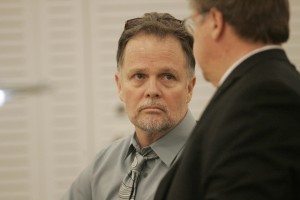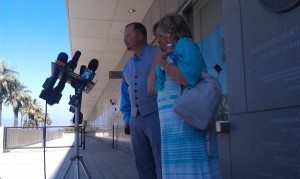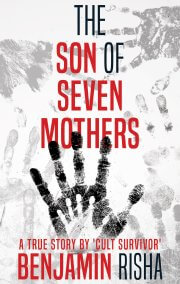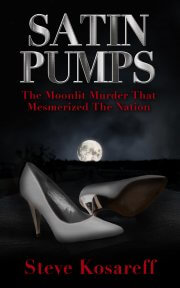By Caitlin Rother
After following the McStay case for the past five years, I drove nearly four hours to San Bernardino and back

1.1 Chase Merritt is accused of killing four members of the McStay family in February 10, 2010.
yesterday to cover the preliminary hearing of Charles “Chase” Merritt, who stands accused of murdering this family of four.
Before I commit myself to writing a true crime book on a specific case, I must weigh many factors, including the logistical challenges of covering a trial as well as the strength of the prosecution’s case. But by the end of the prelim yesterday, when the judge listed all the factors that persuaded him to hold Merritt over for trial, I was convinced that this story is most definitely book worthy.
The mysterious disappearance of Joseph and Summer McStay and their two small boys, Joseph Jr. and Gianni, ages three and four, captivated Southern California when it first hit the news in February 2010. They left eggs and vegetables on the counter of their Fallbrook home and bowls of popcorn on the futon, and authorities found no sign of a struggle or forced entry. But they did notice the smell of fresh paint. The walls were still covered with blue painter’s tape and the easy-to-clean foil wrap with which Joseph Sr. typically lined the paint trays was missing.
Three years later, after a motorcyclist found the family’s remains many miles away in the desert near Victorville, the case became a homicide and the public intrigue dial went up even higher. And when Merritt, Joseph McStay’s partner in a custom water fountain business, was arrested in November 2014 by the San Bernardino County Sheriff’s Department, this became a full blown media event.
Merritt only fueled the intrigue by deciding to represent himself, saying he didn’t have long to live because he was suffering from heart disease, a decision he finally realized was a mistake. He now has a team of four attorneys representing him in this case, which seems very likely to become a death penalty case. The manner in which these murders were committed was horribly violent and excessive. Forensics showed that Joseph Sr.’s skull had a big hole in the back of it, which sounds like he was hit from behind.
I didn’t see any mentions of this in media reports today—maybe they were worried about readers spitting up their

1.2 Michael McStay, the brother of Joseph McStay, one of the four victims, and the mother of the two McStay Brothers.
cornflakes (I know it was certainly very unsettling for me to hear these details, which put the extended McStay family into tears yesterday)—but all four of these victims were smashed in the head, apparently with a 3-pound sledgehammer—while they were still alive. One of the boys was hit in the head at least seven times.
After I heard that, my stomach wrenched, and all I could think for the rest of the day was this: How could anyone do this to such a small boy? And for what? Less than $20,000 in forged checks and ATM withdrawals?
Forensic experts were able to determine that the blows were dealt pre-mortem by the color of the bones they found in the desert sand. Authorities found more than 45 “collections,” which apparently includes not just bones but also bone fragments. I have always stayed away from writing about violent murders of children, so this was very difficult and disturbing for me to envision as well.
I immediately wondered, is there anything in Merritt’s past that suggests he is capable of such violence? Merritt does have a record, but according to KFMB, none of his past crimes, the most recent of which was in 2001, was violent: burglary and burglary grand theft, petty theft, receiving stolen property and criminal trespass.
According to prosecutors, Merritt used Joseph McStay’s QuickBooks account to write himself backdated checks, print them and then deposit them. He made a number of withdrawals from various area casinos, so he apparently likes to gamble.
Still, as the defense noted, embezzlement (and gambling) don’t equate with such horrible violence. “At best they put on an embezzlement case today,” said Jim Terrell, one of Merritt’s defense attorneys told the throng of media outside the courthouse after the prelim yesterday. “We’re here for a murder case.”
That said, Merritt’s cell phone was uncharacteristically turned off for long periods around the time of the McStays’ disappearance, and it also pinged off a tower near the gravesites. He wasn’t visiting family in the area as he suggested, and he couldn’t offer any explanation for the QuickBook checks, which were backdated to the day the family went missing.
I know there must be more to this. Prosecutors don’t present all the evidence they have at a preliminary hearing, the defense attorneys didn’t cross-examine any of the witnesses, and they said afterward that they had explanations for the evidence presented yesterday. But I also have to wonder, was someone else involved?
Detectives testified that they found two sets of tire tracks, with radius measurements of 73 inches and 76 inches, near the two areas where the remains were found, as if two trucks had backed in to the gravesites. The 73-inch tracks matched Merritt’s truck, but whose truck does the other set belong to?
Merritt’s DNA was found on the steering wheel and gear shift of the McStays’s Isuzu truck, which was impounded from a lot near the border in San Ysidro shortly after they disappeared, and which Merritt had claimed he’d never driven. But there was no mention of the Isuzu’s tire radius yesterday, or of any blood found in the vehicle.
As Judge Michael A. Smith read the list of factors that led to his ruling that he saw probable cause that Merritt had participated in the murder, I had to agree, the case against the defendant is strong. But there are still a number of important outstanding questions, which, as the case proceeds, I hope will be answered.
I always approach cases I write about with an open mind, and try to talk to families of both the victims and the accused. If you have any information about this case you would like share with me, please contact me at crother@flash.net.
Photographs:
1.1 Photograph by John Gibbins copyright 2015 San Diego Union-Tribune
1.2 Photograph by Caitlin Rother copyright 2015




 Join our email list
Join our email list
Leave a Reply